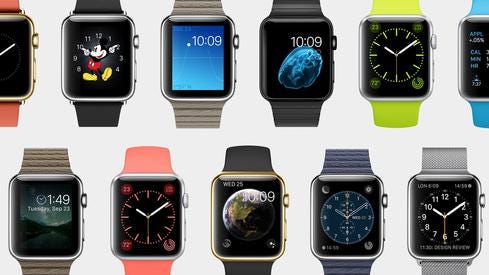Microsoft tries to woo students with free Office 365 accounts as Apple and Google continue to make gains in the classroom.


Apple's Next Chapter: 10 Key Issues
Apple's Next Chapter: 10 Key Issues (Click image for larger view and slideshow.)
Microsoft products have long set the productivity standard in the enterprise world. But the company knows that to continue its dominance it needs to win the loyalty of students who will join the workforce in coming years.
To that end, the company this week announced a program that will let many students gain free access to Office 365. New data also released this week shows why Microsoft might have felt compelled to ramp up its programs for schools: Apple computers are as popular as they've ever been with students, and Chromebooks are eating heavily into low-end laptop sales.
According to NPD Research Group, Macs accounted for 26.8% of consumer computer sales during the back-to-school period, defined as July 4th through Labor Day weekend. That's up from just over 24% during the same period in 2013. Chromebooks, meanwhile, have grown from negligible market share during 2012's back-to-school period to 4.5% this year. Windows PCs led the pack with 68.4%, but that was down markedly from 72.3% in 2013 and over 75% in 2012.
[Workday's new cloud-based app covers students' interactions with colleges and universities for recruiting purposes. Read Workday Student Debuts With Higher-Ed Recruiting.]
This is mixed news for Microsoft. NPD noted that the average selling price of Windows machines was down 8% year-over-year, to around $440. Earlier this year, Microsoft introduced free and low-cost OEM licenses intended to drive down device costs, and, based on NPD's data, the strategy seems to have worked. But despite its appeal to budget shoppers, Microsoft still lost share overall. Overall, Windows device sales were down 3%.
By sacrificing licensing revenue, Microsoft hopes to stimulate device sales and pull more users into its hosted services, such as Office 365. Indeed, many of the new budget-priced Windows devices come with free one-year subscriptions to Office 365, or with Bing as the default search engine. If the plan works, it will help Microsoft shift its revenue emphasis from Windows licenses to cloud-based services -- but NPD's data suggests Microsoft might have hit a snag. Even though the company focused on low-cost devices, Chromebooks accounted for nearly one out of every five notebooks sold for less than $300.
Windows also faces challenges at the other end of the scale. Given that Apple does not offer any budget devices, the company's 26.8% overall share indicates a dominant position in the high-end market. The most expensive Windows options, such as 2-in-1 tablets with attachable keyboards, made up only 13% of Windows consumer PC sales (though to be fair, this was a sixfold improvement over 2013, which suggests hybrids might finally be breaking through).
NPD noted that Apple laptops were up 16% compared to back-to-school 2013. Apple's MacBooks received only incremental components upgrades this year, but the company cut prices on many models -- a tactic that seems to have tempted some students.
{image 1}
With competitors eating into Microsoft's PC turf, the company has turned to new efforts such as its new Office 365 promotion for students. After all, Office 365 works on Macs and iPads as well as Windows devices. Microsoft CEO Satya Nadella would no doubt prefer that more students use Windows 2-in-1s, but if young people are going to choose Macs, perhaps Microsoft can persuade them to use Office instead of free alternatives such as iWork or Google Docs.
Microsoft's new Office 365 program builds on the Student Advantage initiative it launched last year. Student Advantage allowed schools that purchased qualifying Office licenses for faculty and staff to extend Office 365 accounts to students for free. Unfortunately, IT staffers had to manually establish student accounts. The new program removes this hassle, and instead allows students to sign up through a self-service portal.
Microsoft's offering could still be an attractive option for students. Though free productivity apps are available from Google, Apple, and others, Office offers the deepest feature set. Under the new program, eligible students get free access to familiar apps such as Word, PowerPoint, and Excel, 1 TB of cloud storage, and access to Office apps on iPads and other mobile devices.
Microsoft also recently debuted its Office Mix add-on for PowerPoint, which it expressly pitched to teachers as a way to create interactive mixed-media presentations for the classroom. Office Mix presentations can combine video, pen input, interactive quizzes, content from Khan Academy and CK-12 Foundation apps, and more. Microsoft additionally invests in youth-oriented programs such as YouthSpark, a global initiative to help young people gain the technical skills and education necessary to compete for jobs. Some commentators have even linked Microsoft's education goals to its recent purchase of Minecraft maker Mojang, noting that Minecraft's open-ended nature has helped it carve out a niche as an education tool.
Time will tell if these efforts will help Microsoft stave off competition from Google and Apple and remain the dominant PC platform player for the next generation. In the meantime, Apple faces troubling trends of its own. Though iPads are still popular among schools, some educators have chosen to ditch Apple's tablets in favor of more traditional, productivity-oriented Windows devices.
Considering how prevalent third-party attacks are, we need to ask hard questions about how partners and suppliers are safeguarding systems and data. In the Partners' Role In Perimeter Security report, we'll discuss concrete strategies such as setting standards that third-party providers must meet to keep getting your business, conducting in-depth risk assessments, and ensuring that your network has controls in place to protect data in case these defenses fail. (Free registration required.)
About the Author(s)
You May Also Like







